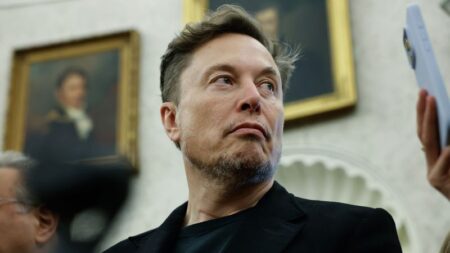The article titled **”How Trump is Using the ‘Madman Theory’ to Try to Change the World (and it’s Working)”** delves into Donald Trump’s unconventional and often erratic approach to foreign policy. It argues that this approach, grounded in the concept of the “Madman Theory,” involves projecting unpredictability to extract concessions from both allies and adversaries alike. The text elucidates how this theory aligns with Trump’s foreign policy strategy, outlining its implications on international relationships, particularly with Europe and adversarial nations like Iran and Russia.
**Introduction to the “Madman Theory”**
The article begins with a poignant remark from Trump when asked about military actions involving Iran, emphasizing that no one really knows what he will do next. This unpredictability becomes a hallmark of Trump’s strategy, as he often oscillates between contradictory positions. Analysts like Peter Trubowitz of the London School of Economics highlight that Trump’s centralized decision-making has made diplomatic outcomes increasingly dependent on his temperament. Rather than a mere political tactic, this notion appears to root itself deeply in his character.
**Unpredictability as a Strategic Asset**
Trump has effectively turned his unpredictability into a strategic asset. This “Unpredictability Doctrine” is not merely a political gimmick—it is a deliberate approach intended to shake up established norms and compel reactions from both allies and adversaries. The article explains that the Madman Theory suggests leaders can coerce their opponents into compliance by cultivating a reputation for irrationality. Trump apparently believes this strategy yields tangible benefits, impacting how the U.S. is perceived internationally.
**Political Maneuvering Among Allies**
Turning to his interactions with allies, the article recounts various incidents where Trump has embraced or insulted global leaders, most notably Russian President Vladimir Putin, while simultaneously risking the longstanding support of allies in Europe. According to the article, this approach has led to a shift in European defense commitments, with nations feeling the need to bolster their own security due to uncertainties surrounding U.S. intentions.
**Transformations in NATO and European Security**
The author highlights that this unpredictability has disrupted trans-Atlantic solidarity, with voices like former British defense secretary Ben Wallace suggesting that NATO’s Article 5 is “on life support.” Trump has openly expressed doubt about the U.S.’ commitment to Europe’s defense, compelling countries like the UK to increase their defense budgets under the threat of continued underinvestment.
**The Role of Flattery and Compliance**
As Trump wields unpredictability as a lever for gaining concessions, European leaders have begun to flatter him, hoping to secure American support. The article recounts instances where NATO leaders overtly hinted at supporting Trump’s policies, exemplified by messages from NATO Secretary-General Mark Rutte, who congratulated Trump on military actions in Iran.
**Doubts About Effectiveness Against Adversaries**
While the theory might induce cooperation among allies, the article questions its effectiveness against adversaries. Leaders like Ukrainian President Volodymyr Zelensky and Vladimir Putin exhibit differing reactions. Zelensky, despite harsh rhetoric from Trump and his administration, still acquiesced to U.S. interests in resource exploitation. Conversely, Putin appears unaffected by Trump’s approach, indicating the limits of the unpredictability strategy.
**Potential Backfire and Long-Term Consequences**
The unpredictability around Trump’s government is seen as a double-edged sword, potentially prompting foreign adversaries to pursue aggressive strategies, such as Iran seeking nuclear capabilities. The article references scholars like William Hague and Michael Desch, who argue that aggressive U.S. actions might lead adversaries to adopt more self-defensive or aggressive postures themselves.
**Conclusion: An Uncertain Future in International Relations**
Ending on a contemplative note, the article expresses concern about whether the unpredictable approach will lead to sustainable commitments from allies or simply foster distrust. Trump’s strategies might force Europe towards independent security measures, redefining trans-Atlantic relations in a post-Trump era. The potential for an erosion of trust raises questions about the future of American diplomatic influence globally.
In essence, the article provides a nuanced examination of how Trump’s unpredictable strategy shapes international relations and could signify a shift in power dynamics, especially in the context of a changing global landscape.











